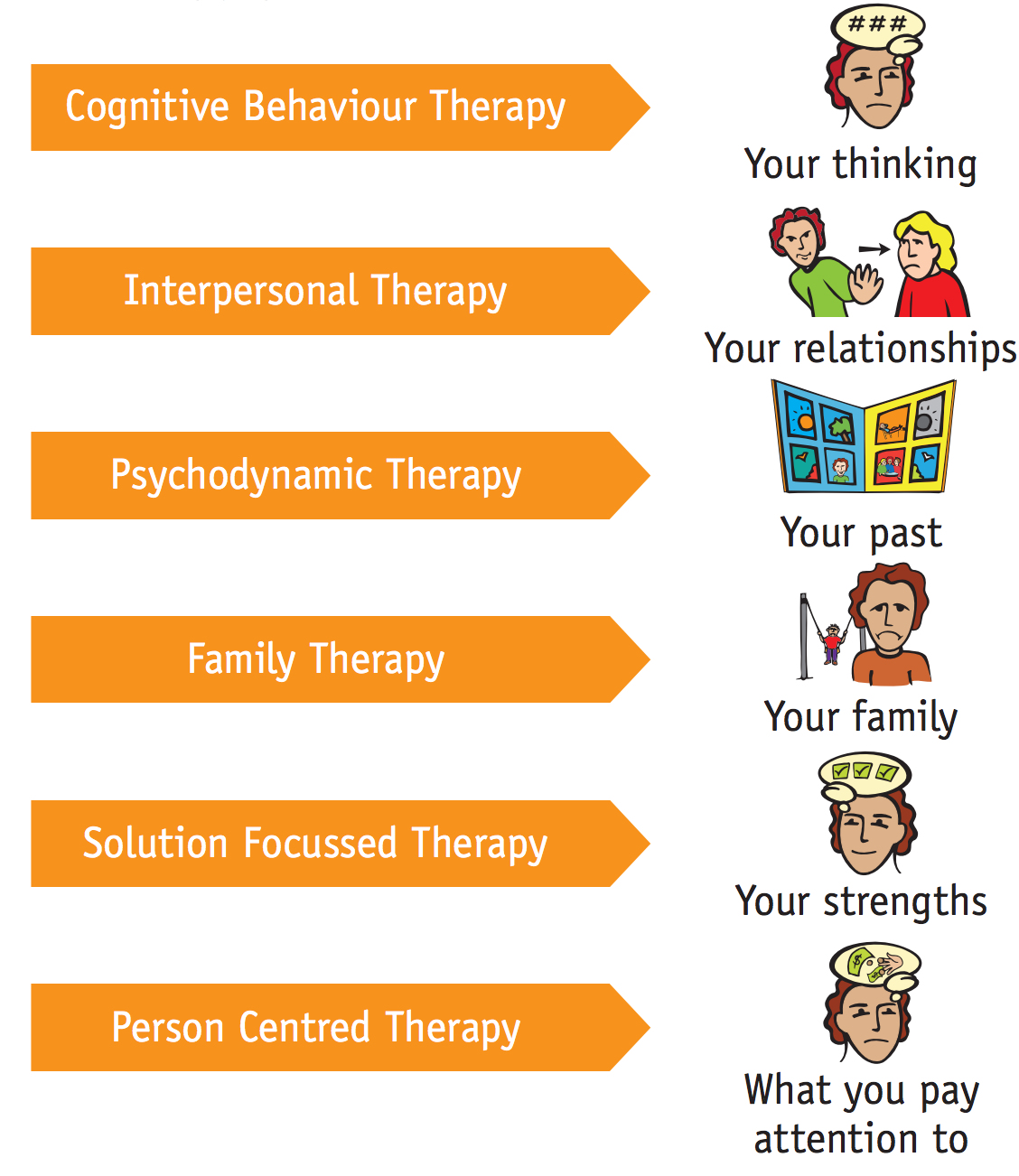Key Takeaways from adhd counselling treatment for Adults and Children
Wiki Article
Exploring the Benefits of Virtual Therapy in Modern Mental Healthcare
The rise of virtual therapy notes a considerable change in mental healthcare. It uses boosted ease of access, permitting individuals from diverse backgrounds to seek aid without geographical constraints. Versatility in scheduling accommodates varying way of livings, while the comfort of home can foster openness. However, the ramifications of these adjustments extend past plain benefit. The developing landscape of therapy increases important concerns regarding its long-lasting results on patient involvement and therapy results.Boosted Ease of access for All
Conventional therapy usually offers barriers such as geographical location and organizing disputes, virtual therapy greatly improves access for individuals seeking psychological health support. By getting rid of the requirement for physical travel, virtual therapy allows customers from remote locations or those with movement challenges to get in touch with qualified experts. This setting of therapy can reach underserved populaces who might do not have local mental health resources, thus attending to variations in accessibility to care. Additionally, virtual systems can provide to varied demands, providing solutions in multiple languages and accommodating different social histories. Clients can involve with a more comprehensive variety of specialists, giving them with options that align with their certain demands and choices. This raised accessibility fosters a more inclusive atmosphere, enabling individuals to seek help without the preconception usually related to in-person sees. In general, virtual therapy stands for a significant innovation in making psychological healthcare more obtainable to all.Adaptability in Organizing Sessions

As virtual therapy remains to obtain grip, its inherent flexibility in organizing sessions shows to be a substantial advantage for numerous people. Unlike typical in-person therapy, virtual therapy enables customers to select session times that best fit their personal and professional dedications. This versatility suits those with demanding work schedules, family responsibilities, or other commitments that can make going to physical visits challenging.
Clients can conveniently reschedule or adjust their sessions as needed, lowering the tension associated with stiff consultation systems. The availability of different time slots throughout the week, consisting of nights and weekend breaks, additionally boosts availability. This adaptability not just urges consistency in participation yet also cultivates a better commitment to the therapeutic procedure. Eventually, the flexibility in scheduling sessions represents a transformative shift in mental healthcare, encouraging people to prioritize their health without compromising other facets of their lives.
Comfort of a Familiar Environment
The convenience of a familiar atmosphere significantly enhances the performance of virtual therapy for several customers. Taking part in therapy from the safety and security of their own homes permits individuals to really feel more at convenience, minimizing anxiety that might come with traditional in-person sessions. This knowledge can facilitate open interaction, enabling customers to share their ideas and sensations extra openly.Moreover, the presence of individual items and the ability to control their surroundings can add to a feeling of protection and leisure. Customers often report that being in a comfy area enables them to concentrate a lot more on the therapeutic process as opposed to the establishing itself.
In addition, the casual nature of virtual sessions can help liquify barriers that may exist in a typical office atmosphere, cultivating a much deeper link with therapists. On the whole, the convenience of familiar environments plays an essential function in enhancing the healing experience and performance for many people looking for mental health assistance.
Broader Series Of Healing Options
A bigger variety of restorative options comes to be offered through virtual therapy, enabling clients to accessibility different methods that may not be feasible in standard setups. This flexibility allows people to check out varied methods such as cognitive-behavioral therapy, mindfulness techniques, art therapy, and also specialized treatments like trauma-informed treatment or dialectical actions therapy.Additionally, customers can select from a wider range of specialists, consisting of those that concentrate on niche areas or certain populations, enhancing the possibility of finding a suitable suit. Virtual platforms frequently provide access to group therapy sessions, assistance areas, and workshops that might be geographically unavailable or else.
This selection encourages customers to involve in their healing process according to their unique preferences and demands, potentially increasing inspiration and dedication to treatment. Because of this, the landscape of psychological health treatment ends up being a lot more inclusive and versatile, providing to a wider variety of private experiences and obstacles.
Lowered Preconception Surrounding Therapy
Accessing therapy with virtual systems adds to a substantial decrease in the preconception generally related to mental health and wellness treatment. By offering a very discreet and private setting, virtual therapy enables people to look for help without the worry of being evaluated or recognized. This anonymity appeals to those that may otherwise hesitate to seek in-person therapy due to social assumptions surrounding psychological wellness.As the prevalence of virtual therapy boosts, it normalizes the conversation around mental wellness, making it a more acceptable part of daily life. Individuals commonly really feel a lot more comfy discussing their experiences online, promoting visibility and reducing sensations of isolation. The accessibility of these services additionally urges a wider group to involve with psychological wellness sources, cultivating a culture of support instead of embarassment. Ultimately, the surge of virtual therapy plays an essential role in reshaping attitudes in the direction of looking for help, adding to a more accepting society relating to mental health obstacles.
Cost-Effectiveness and Affordability

Lowered Session Costs
Many individuals seeking mental wellness support find that virtual therapy significantly lowers session costs compared to standard in-person alternatives. The elimination of travel costs and time off job typically adds to overall savings. In addition, many virtual therapists offer affordable prices because of lower overhead expenses associated with preserving a physical office. This shift in expenditure enables clients to access top quality mental health and wellness solutions without the financial pressure that may feature traditional therapy. For lots of, this affordability allows a lot more frequent sessions, which can improve treatment results. Because of this, virtual therapy not only democratizes access to psychological healthcare yet additionally gives a lasting economic version that straightens with customers' budget plans, making mental health support more obtainable for a broader audience.Expanded Access Alternatives
While typical therapy often offers logistical obstacles, virtual therapy significantly broadens access choices for people looking for mental health treatment. By getting rid of the need for travel and allowing adaptable organizing, virtual therapy suits diverse lifestyles and dedications. This accessibility is particularly advantageous for those in remote locations or with wheelchair challenges. Furthermore, the cost-effectiveness of virtual therapy lowers economic stress, making mental wellness services extra reachable. Many systems use tiered pricing or moving scale charges, promoting cost. Insurance provider significantly acknowledge virtual therapy, more improving its economic accessibility. On the whole, virtual therapy not only broadens the range of who can get treatment however also addresses financial barriers, making mental health assistance more comprehensive and attainable for all.Enhanced Connection of Treatment
Boosted continuity of care becomes a significant advantage of virtual therapy in modern-day mental health care. This approach allows clients to maintain constant communication with their therapists, despite geographical obstacles or scheduling conflicts. virtual therapy. The versatility of virtual sessions cultivates normal check-ins, which are crucial for keeping an eye on development and adjusting treatment plans as necessaryAdditionally, digital wellness documents and telehealth systems facilitate seamless information sharing among care suppliers. This interconnectedness guarantees that all specialists associated with a patient's treatment are upgraded on treatment growths, bring about even more coordinated and reliable treatments.
Clients often experience lowered anxiety and increased involvement as a result of the ease of accessing therapy from acquainted atmospheres. Such access improves adherence virtual therapy to therapy regimens, ultimately improving end results - virtual therapy. To summarize, virtual therapy not only bridges gaps in psychological wellness services but likewise strengthens the continuity of treatment, an important element of successful therapeutic partnerships
Often Asked Inquiries
How Does Virtual Therapy Make Certain Confidentiality and Personal Privacy for Customers?
The current question addresses the procedures virtual therapy employs to secure customer confidentiality. Using encrypted systems, secure logins, and conformity with laws like HIPAA, virtual therapy assurances that delicate information continues to be exclusive and inaccessible to unapproved individuals.Can I Change Therapists Easily in Virtual Therapy?
Switching over therapists in virtual therapy is normally straightforward. Customers can communicate their need for an adjustment via the system, permitting adaptability in locating a far better match without the logistical difficulties of in-person appointments.What Innovation Do I Need for Virtual Therapy Procedure?
To take part in virtual therapy sessions, a specific commonly needs a trusted internet link, a computer or smart device with a video camera and microphone, and accessibility to a secure video conferencing system specified by their specialist.
Are Virtual Therapy Sessions as Effective as In-Person Sessions?
Current research studies show that virtual therapy sessions can be equally reliable as in-person sessions, depending on the individual's choices and scenarios. Elements such as convenience and access may improve the total therapeutic experience for some clients.What Should I Do if I Experience Technical Issues Throughout a Session?
If technical problems occur throughout a session, one ought to steadly communicate the issue to the therapist, effort to reconnect, or switch to a backup technique. Patience and versatility are crucial in taking care of these disruptions.Report this wiki page